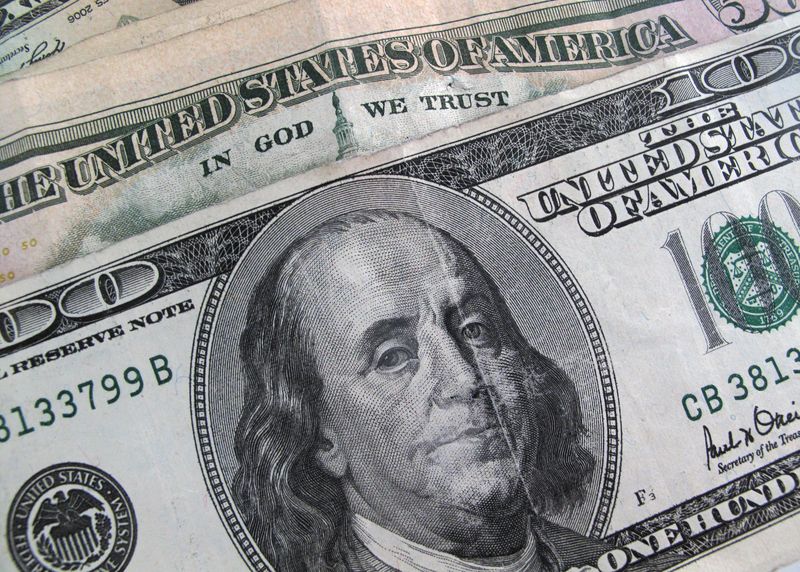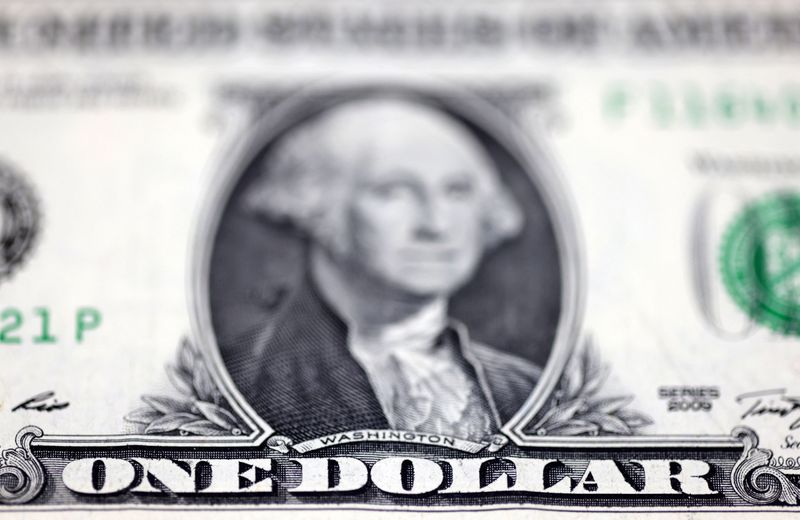By RaeWee
SINGAPORE (Reuters) – The dollar rose on Monday on security bids in the wake of the attempted assassination of former U.S. President Donald Trump, in turn leaving the yen struggling to stay afloat despite suspected intervention efforts of Tokyo.
Trading was thinned in Asia while Japan was on holiday, although news of Trump’s shooting dominated the market’s cautious mood and caused investors to downgrade the chances of a Trump victory after the US election in November.
The assassination attempt likely reinforces Trump’s “reputation of strength,” said Jack Ablin, chief investment officer at Cresset Capital. “The specter of political violence introduces a whole new level of potential instability.”
“It’s uncertainty and volatility, and obviously the markets don’t like that. It’s not an environment anyone wants to see,” he said.
The dollar led overall in early trading, sending the euro down 0.23% to $1.0885 and sterling down 0.17% to $1.2968.
The risk-sensitive Australian dollar fell 0.18% to $0.6771, while the New Zealand dollar fell 0.35% to $0.6097.
“The market reaction to Trump’s presidency has been characterized by a stronger US dollar and a steeper US Treasury yield curve, so we could see some of that in the coming week if his election chances are assumed to have improved further after this incident. says Rong Ren Goh, portfolio manager at Eastspring Investments.
Against a basket of currencies, the dollar was little changed at 104.28.
Cash U.S. Treasury bonds did not trade in Asia on Monday due to the holiday in Japan, but 10-year Treasury bond futures moved lower, signaling yields will rise when cash trading begins later in the day. Bond yields move in the opposite direction to prices.
Under the Trump presidency, market analysts expect more aggressive trade policies, less regulation and looser regulations on climate change.
Investors also expect an extension of corporate and individual tax cuts set to expire next year, fueling concerns about rising budget deficits under Trump.
INTERVENTION VIEW
Elsewhere in Asia, the yen also remained on traders’ radar after Tokyo was believed to have intervened in the market last week to prop up Japan’s battered currency.
Against the dollar, the yen was last down 0.3% at 158.36, after strengthening to a one-month high of 157.30 per dollar on Friday.
Data from the Bank of Japan suggested on Friday that authorities may have spent up to 3.57 trillion yen ($22.4 billion) on Thursday in this year’s latest round of intervention.
The Ministry of Finance (MOF) has so far remained silent on whether or not it was behind the yen’s sudden and steep strengthening. It merely reiterated the authorities’ willingness to take action on the foreign exchange market if necessary.
Analysts said Monday’s holiday in Japan could create ideal conditions for authorities to strike again given limited liquidity, similar to that of the April through May intervention rounds.
“The confirmed currency intervention undertaken by the MOF in April and May proved that policymakers are willing to be smart in choosing the timing of their moves,” said Jane Foley, head of FX strategy at Rabobank.

‘To get more bang for their buck, currency intervention in calm conditions or following the release of softer US economic data seems a sensible move.
“The intervention carried out this spring indicated that the MOF is very willing to act outside Tokyo’s normal trading hours.”


